|
Usage - Pronoun Case
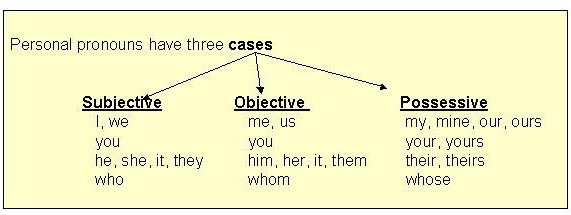
The pronoun's function in a sentence
determines which case to use.
RULE:
Use a subjective case
pronoun
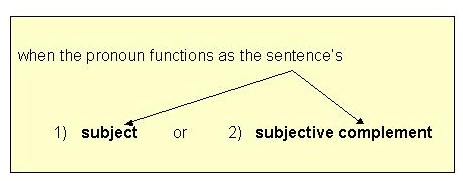
1) Personal pronoun subject
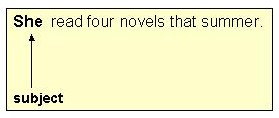
2) Personal pronoun subjective complement
("completes" the subject)
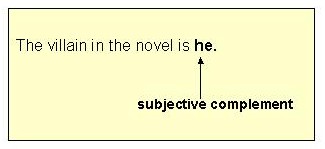
RULE:
Use an objective case
pronoun

1)
Personal pronoun direct object
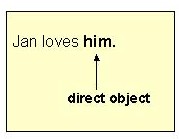
2) Personal pronoun indirect object
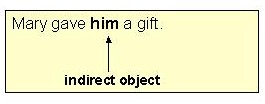
3) Personal pronoun object of preposition
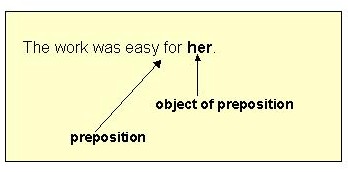
Additional pronoun case rules
1. When a pronoun is
used along with a noun, choose the pronoun case that matches the
noun's function.
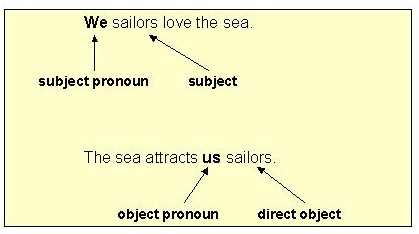
2. When a pronoun is part of a
compound element, choose the pronoun case that would be correct if the pronoun were not part of a compound element.
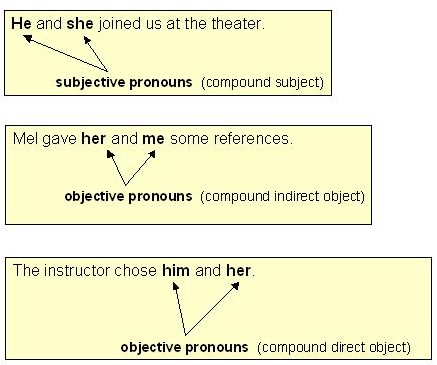
NOTE: To make certain that pronoun case is correct in compound
elements, omit one
half of the compound to check each pronoun.

3. When a personal
pronoun is used in a comparison, choose the correct pronoun case by carrying the sentence out to its logical conclusion.
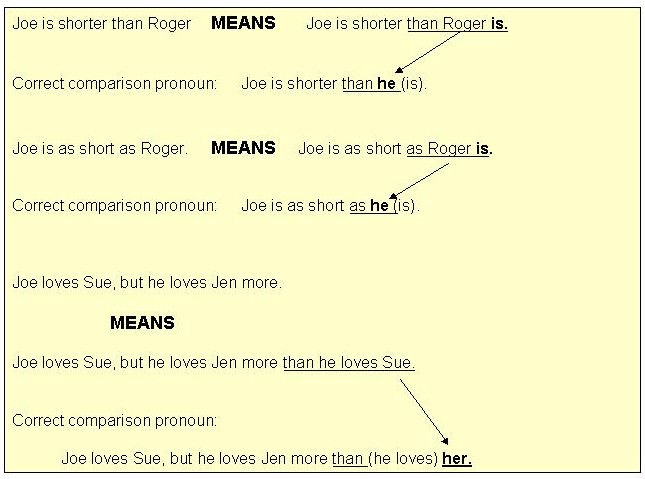
4.
Choose who
or whom depending upon the function of the pronoun in the
sentence.
Who
is subjective case like the pronouns he, she, they, I,
and we.
Use who as the subject or subjective complement of a sentence.

Helpful tip: To see whether who is the correct choice,
substitute he for who.
If the sentence sounds correct, then who is the
correct choice.
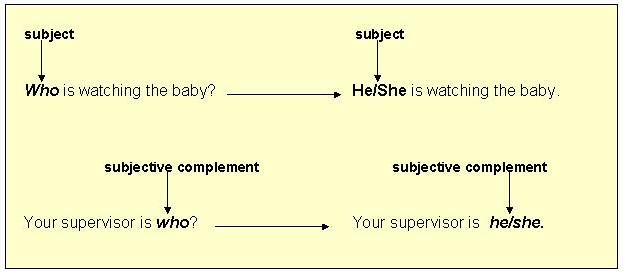
Whom is objective case like the pronouns him, her, them,
me, and us.
Use whom as the direct object,
indirect object, or object of a
preposition in a sentence.
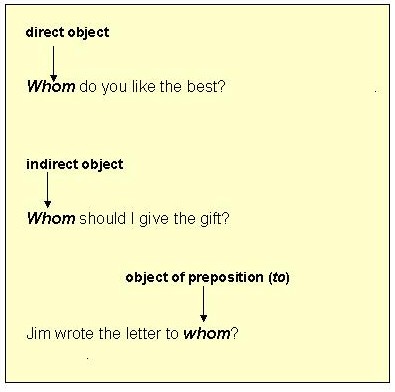
Helpful tip: To see whether whom is the correct choice,
substitute him for whom.
If the sentence sounds correct, then whom is the
correct choice.
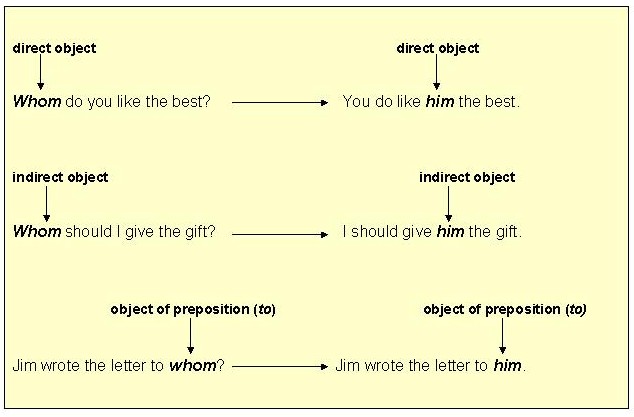
NOTE: In an adjectival subordinate clause, choose who
or whom by determining the
pronoun's function within
the subordinate clause.
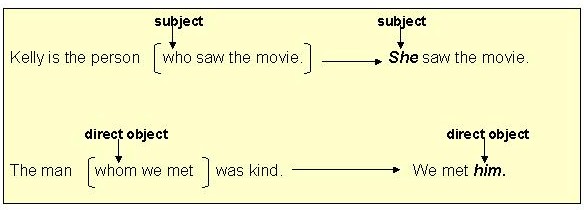
5. Use
possessive case pronouns with gerunds.
Reminder:
A gerund is a verb form ending in -ing, used as a noun.
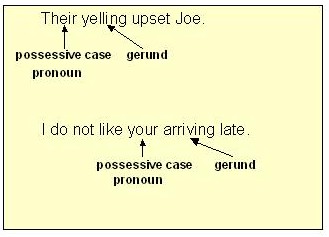
|